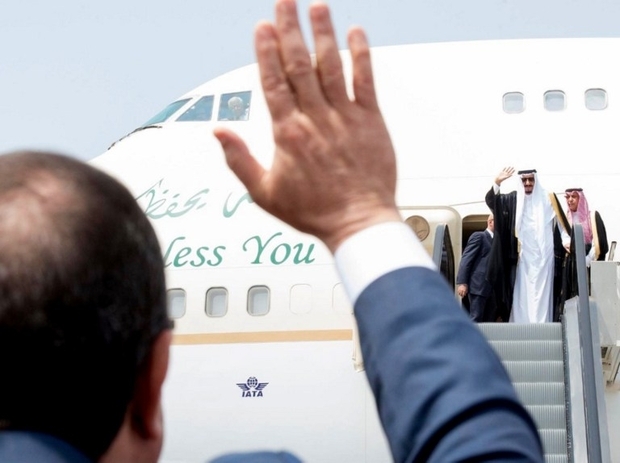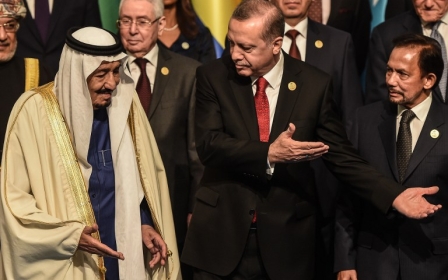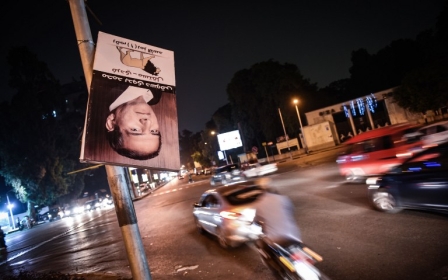Cut the hype: A Saudi-Egyptian break up is not imminent

A series of differences between Saudi Arabia and Egypt, most recently and notably over the Syrian conflict, has led to speculation about the durability of their relationship, which has been seen as a cornerstone alliance in the Middle East since Egyptian president Mohamed Morsi was ousted in 2013.
Sources of Saudi anger include Cairo establishing diplomatic channels with Lebanon’s Hezbollah movement and Houthi rebels in Yemen, maintaining them with Iran, and moving closer to the Syrian regime. Meanwhile, Riyadh has strengthened ties with Qatar and Turkey, both of which have strained relations with Egypt over Morsi's overthrow.
October in particular has seen tensions between Riyadh and Cairo that are unprecedented since Morsi’s successor Abdel Fattah al-Sisi took power. The Saudi envoy to the UN labelled as “painful” Egypt’s vote in favour of a draft Russian resolution that did not mention a halt to air strikes on rebel-held eastern Aleppo.
The next day, Riyadh suspended oil aid to Egypt, estimated at 700,000 tonnes of petroleum products every month, prompting Cairo to say it had secured alternative sources. Days later, Syria’s security services chief met with senior Egyptian officials, and “agreed to coordinate on political positions... and strengthen coordination on fighting the terrorism faced by both countries,” Syria’s state news agency reported.
Days later, reports emerged that Iran lobbied for Egypt’s attendance at this month’s talks on Syria in Switzerland to counter-balance countries opposed to the Syrian regime. All this comes against the backdrop this month of joint Egyptian-Russian military exercises, Iran reportedly ramping up weapons deliveries to Houthi rebels, and former Lebanese Prime Minister Rafik Hariri backing Hezbollah ally Michel Aoun for president.
Curbing Iranian expansion
Saudi frustrations should be framed not so much in the context of Egypt’s increasing closeness to Russia or the Syrian regime – Riyadh is also improving ties with Moscow, and Damascus does not threaten Saudi regional interests.
We are not seeing the formation of an Egyptian-Iranian alliance, though Tehran would undoubtedly relish this
To Riyadh, it is about arch-enemy Iran’s expanding footprint in the Middle East. Syria, Iraq, Lebanon, and to a lesser extent Yemen have become part of Tehran’s sphere of influence, its regional ambitions no longer encumbered by crippling sanctions and diplomatic isolation following the nuclear deal.
Riyadh would be deeply worried about closer Iranian-Egyptian ties, because Egypt is a Saudi ally, a political and military powerhouse in the region, and the Arab world’s most populous nation. Saudis would also see this as an attempted encirclement by Tehran, with Iran to the east, Iraq, Syria and Lebanon to the north, Yemen to the south and Egypt to the west.
However, perhaps in an attempt to pique public interest, some media reports and analysts are exaggerating the significance of these developments to Saudi-Egyptian relations. We are not seeing the formation of an Egyptian-Iranian alliance, though Tehran would undoubtedly relish this.
Opportunism, not realignment
Bilateral ties between Cairo and Tehran have been tense for decades, and in March Egypt’s foreign minister told Saudi newspaper Okaz that to improve ties with Cairo, Tehran would need to respect Arab states’ independence and sovereignty, and practice non-interventionism, among other conditions that Iran has clearly not met.
What we are seeing is a convergence of views on Syria. Cairo sees the conflict there as one against Islamist terrorism with similarities to its own, including the presence in both countries of the Muslim Brotherhood and the Islamic State. As such, Tehran’s lobbying for Egypt’s participation in talks on Syria was opportunistic.
The improvement in Egyptian-Russian ties is not related to Iran. It originates in tensions between Cairo and Washington over the latter’s criticisms of the crackdown on dissent following Morsi’s overthrow, and the subsequent partial (and short-lived) cut in US military aid.
Sisi knows that Arab Gulf monarchies – particularly Saudi Arabia – provide a national and personal lifeline, so there is a limit to how close he would want to get to Iran
Sisi is aware of the extent and importance of Saudi financial and political support since Morsi’s overthrow, for which Sisi thanked Riyadh this month. The kingdom gave Egypt $5bn after Morsi was ousted, pledged an additional $4bn in March 2015, and signed agreements worth $25bn in April this year, not to mention billions of dollars in aid from other Gulf states.
Tehran and Cairo know that Iran could not fill the void should Gulf financial support to Egypt run dry, even with sanctions lifted (Iranians would be loath to see so much vital financial relief spent propping up yet another foreign government).
Too much invested
With growing grievances among Egyptians at their domestic situation, and a persistent insurgency, Sisi knows that Arab Gulf monarchies – particularly Saudi Arabia – provide a national and personal lifeline, so there is a limit to how close he would want to get to Iran.
Conversely, it is precisely this massive investment in Sisi’s Egypt that would stop Riyadh from turning its back and seeing that investment wasted. Egypt is far more important to the kingdom than Lebanon, to which Riyadh in February halted $3bn in aid to the army, citing “hostile Lebanese positions resulting from the stranglehold of Hezbollah on the state".
This move, while understandable, contributed to a decrease in Saudi leverage in Lebanon – something that would be a great deal more costly to the kingdom, and unpredictable, in the case of Egypt. Furthermore, given Sisi’s authoritarianism, there is currently no obvious alternative to him who could guarantee Saudi interests.
The suspension of oil aid is a warning, but it is not in Riyadh’s interest to escalate much further against an ally that is part of the kingdom’s regional alliances and activities.
When both countries’ officials stress that their differences do not affect the overall relationship, there may be an element of papering over cracks, but that does not make such statements untrue. There is a mutual awareness of the relationship’s importance, and there is nothing presently to suggest Iran is able to drive a big enough wedge between them to jeopardise it.
- Sharif Nashashibi is an award-winning journalist and analyst on Arab affairs. He is a regular contributor to Al Arabiya News, Al Jazeera English, The National, and The Middle East magazine. In 2008, he received an award from the International Media Council "for both facilitating and producing consistently balanced reporting" on the Middle East.
The views expressed in this article belong to the author and do not necessarily reflect the editorial policy of Middle East Eye.
Photo: Saudi King Salman waves to Egyptian President Abdel Fattah al-Sisi as he leaves Cairo's international airport in April 2016 (AFP/Saudi Press Agency)
New MEE newsletter: Jerusalem Dispatch
Sign up to get the latest insights and analysis on Israel-Palestine, alongside Turkey Unpacked and other MEE newsletters
Middle East Eye delivers independent and unrivalled coverage and analysis of the Middle East, North Africa and beyond. To learn more about republishing this content and the associated fees, please fill out this form. More about MEE can be found here.





